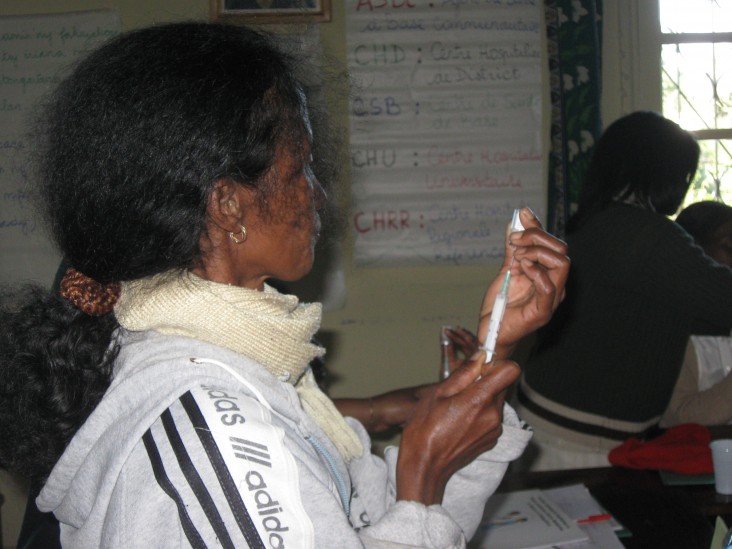
For Immediate Release
Antananarivo, Madagascar: USAID/Madagascar is celebrating the achievements of a major five-year $31.5 million project that will reach its completion in July 2013. The USAID-funded community health project, Santenet2, was dedicated to increasing the use of life-saving primary health care services and commodities in Madagascar. Santenet2 assisted the Malagasy people by providing services in maternal and child health, nutrition, family planning, reproductive health, malaria control, and sexually-transmitted infections (STI/HIV/AIDS).
“Santénet2 has reached out and provided services to people across 800 rural and remote communes mobilizing a network of more than 12,000 community health volunteers,” said Rudolph Thomas, USAID/Madagascar Mission Director, at the formal ceremony on Wednesday April 24th.
“Volunteers were trained, equipped and supported, enabling them to provide critical primary health care services to their communities: a lifeline to nearly 10 million Malagasy. This impressive commitment of time and effort from an army of community health volunteers is only matched by the overwhelming response and engagement from the communities themselves. We reached out and they reached back. ”
In the last year alone, more than 192,000 children accessed simple, life-saving diagnosis services and treatment for pneumonia, fever, and diarrhea and more than 154,000 women accessed oral and injectable contraceptive methods. The project also aimed to maintain a low HIV prevalence.
“It was very rewarding to observe the tangible results of the concerted efforts of more than 700 professionals on a daily basis to better the health status of women and children in 800 communes and 6,500 remote villages”, said Volkan Cakir, Santénet2 Chief of Party.
The United States has supported the development of the Malagasy people for the last 27 years, especially in public health. This year, USAID is providing over $66 million in assistance to the Malagasy people with programs that include investments in health, food security, and water and sanitation programs.







Comment
Make a general inquiry or suggest an improvement.